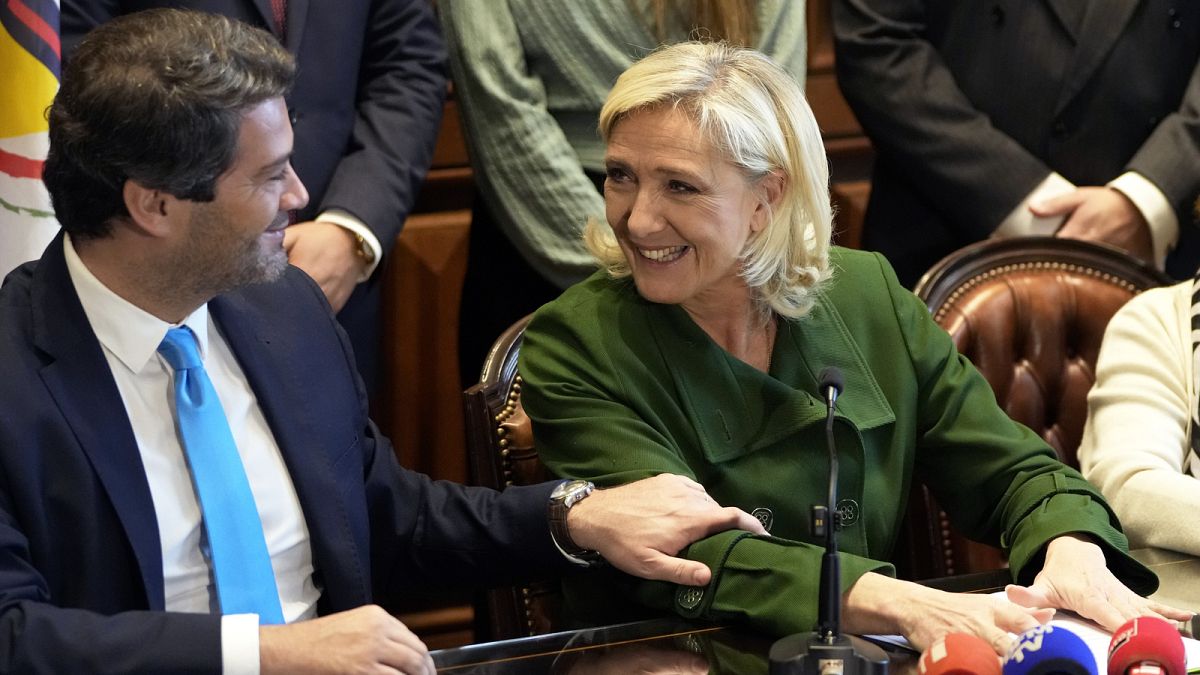Far-right leaders in Europe are discussing the possibility of reconfiguring the right-wing in the European Parliament after making significant gains in the recent European elections. Marine Le Pen, the leader of France’s National Rally (RN) party, met with leaders of other radical right-wing parties, such as Italy’s League party, to discuss uniting the EU’s fractured right-wing. The leaders of parties belonging to the Identity and Democracy (ID) group gathered in Brussels to explore the idea of forming a big right-wing bloc to combat corruption, illegal immigration, and control of borders.
The far-right parties in the European Parliament are currently divided into two camps: ID and the hard-right European Conservatives and Reformists (ECR). To potentially become the third or second biggest political force in the European Parliament, the parties are considering merging. Marine Le Pen has expressed interest in uniting her ID group with Georgia Meloni’s ECR group to form a far-right supergroup. This move could give Le Pen more power as she eyes the opportunity to take control of the National Assembly in France.
However, uniting these radical forces is not without challenges. Deep rifts over issues like the conflict in Ukraine and pro-Russia sentiments are hindering the formation of a cohesive right-wing bloc. Some parties within the ID group, like the Austrian Party for Freedom (FPÖ), are considered pro-Russian and opposed to the EU’s support for Ukraine. Additionally, the Alternative for Germany (AfD) was recently expelled from the group due to scandals involving members spreading pro-Kremlin propaganda.
Despite these challenges, leaders within the ID group have made efforts to soften their stances on divisive issues. For example, they have toned down anti-European sentiment and softened support for Ukraine. Parties like Marine Le Pen’s RN have distanced themselves from more radical right-wing counterparts and are actively seeking alliances with center-right partners. Centrist and left-leaning forces have warned Europe’s traditional center-right forces from aligning with radical partners, highlighting potential consequences for Ukraine and geopolitical stability in Europe.
Overall, the discussions among far-right leaders in Europe to potentially reconfigure the right-wing in the European Parliament are significant. The possibility of forming a big right-wing bloc to address common issues like corruption, illegal immigration, and border control could have a major impact on European politics. However, challenges related to divergent views on key geopolitical issues like Ukraine and pro-Russia sentiments may complicate the process of uniting radical right-wing parties. Despite these challenges, leaders are actively engaged in negotiations and discussions to explore the feasibility of creating a far-right supergroup in the European Parliament.










